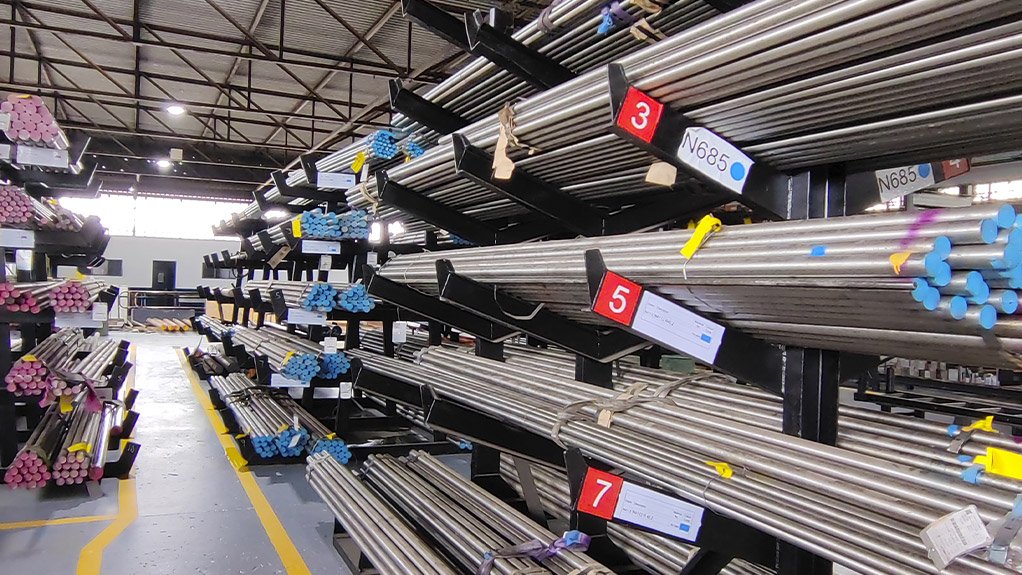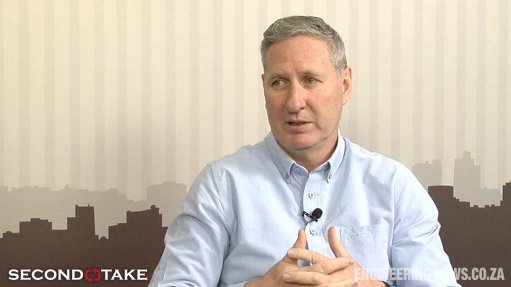Govt focused on domestic investments to stimulate manufacturing
Government is set to increase investment into key industries that will bolster local manufacturing, Department of Trade, Industry and Competition industrial procurement and development chief director advocate Tebogo Makube has said.
Speaking at the 2024 Manufacturing Indaba, in Sandton, on October 22, he outlined the government’s strategy to strengthen the economy through targeted industrial policy measures and greater reliance on local manufacturers.
Makube highlighted that a major component of this strategy would involve public procurement. He explained that the government had started implementing local content requirements in public procurement in 2011, with amendments made to the regulations in 2017. However, in 2022, the Constitutional Court declared the 2017 Preferential Procurement Regulations unconstitutional, effectively halting the formal use of local content in the public procurement system.
Makube emphasised that, despite these legal challenges, there was hope for economic improvement, particularly in relation to power supply and logistical bottlenecks, going forward.
He pointed to the inefficiencies in the country’s ports and rail sectors over the last few years, stating that there had been widespread complaints about their underperformance. The government, through the National Logistics Crisis Committee, was planning to scale up investments in the rail sector and manage costs by involving private sector participation programmes.
However, Makube raised concerns about the sustainability of relying on imports to address these and other challenges affecting the economy.
"We have an option to import everything, to scale up production in those areas, or to import everything through, for example, renewable-energy programmes to deal with power challenges. But is that sustainable? Is there any country in the world that has grown on the back of imports?" he asked.
He asserted that no country had achieved long-term growth based solely on imports, and that it was therefore essential to support local manufacturers in the economy.
He clarified that this would not be an outright import substitution policy, but rather a strategy to leverage government expenditure and form partnerships with international original equipment manufacturers.
These partnerships would help increase the capacity of local manufacturers to deliver on infrastructure projects.
The government had committed to focusing on infrastructure as a key driver of economic growth, with Makube noting that the government would prioritise projects in the roads, ports and energy sectors.
These projects would be supported by capital expenditure, with the intention of bolstering local manufacturing capacity. He stressed that the government’s broader goal was to promote industrial innovation, technological development, and job creation, while also ensuring that South African manufacturers were competitive enough to export to international markets.
Makube acknowledged that South Africa's economic growth was currently driven by the tertiary sector, particularly services such as information and communications technology, banking, and business services. However, he pointed out that these sectors did not produce tradable goods and, therefore, did not generate export income.
"There are many multipliers associated with manufacturing. We export manufacturing, we earn income in foreign markets, and if that sector is not growing, we have a problem,” he said.
He highlighted the structural problems facing the domestic manufacturing sector, pointing to its declining contribution to the country's GDP compared with the 1990s.
He warned that the country’s dependence on imports was particularly concerning in the face of a decline in the manufacturing sector.
Historically, South African manufacturing has been closely tied to the mining sector, and there was a strong correlation between the performance of mining and manufacturing. As a result, when the domestic mining sector struggled, as it had of late, the manufacturing sector also faced difficulties.
Makube noted that 60% of South Africa's exports were linked to minerals, making it essential for the country to diversify its economy away from a resource-based model.
He also raised concerns about South Africa's position as a net importer of fuel, especially given the closure of several refineries, which impacted the country’s exchange rates, balance of payments and trade balance.
In addition to fuel, other sectors in South Africa rely heavily on imports, including pharmaceuticals, IT and transportation. While South Africa has a strong automotive manufacturing sector, significant imports are still required to meet domestic demand.
Makube underscored the importance of reducing dependence on imports in the pharmaceutical sector as well, given South Africa's high burden of disease.
"We import most of our HIV antiretrovirals, and we rely heavily on imported medicines. This includes vaccines for immunisation,” he said.
Makube stated that the government had developed sectoral master plans to address these challenges and that his department would be approaching the Minister of Health to formulate a strategy to increase local production of pharmaceuticals.
He emphasised the need for policy instruments, such as cash payments, industrial finance and tax incentives, to incentivise local manufacturing in key sectors. Depending on economic trends, the government might also adjust tariffs to protect certain industries.
Makube also touched on the potential impact of international environmental standards on South Africa’s steel and automotive industries. He noted that the EU and the UK were implementing the Carbon Border Adjustment Mechanism, which could pose challenges for South African exports. This, he said, was being viewed as a non-tariff barrier, but it would put pressure on South African industries to adopt more sustainable practices, particularly in energy-intensive sectors.
Makube highlighted the importance of including historically disadvantaged South Africans in the country’s economic production.
"Skills development, transformation and empowerment are crucial. We need to ensure that the majority of South Africans are involved in the production side of the economy, or we will continue to face structural economic challenges," he said.
He said government was also working on measures to promote black industrialists as part of its broader strategy to drive economic transformation.
Comments
Press Office
Announcements
What's On
Subscribe to improve your user experience...
Option 1 (equivalent of R125 a month):
Receive a weekly copy of Creamer Media's Engineering News & Mining Weekly magazine
(print copy for those in South Africa and e-magazine for those outside of South Africa)
Receive daily email newsletters
Access to full search results
Access archive of magazine back copies
Access to Projects in Progress
Access to ONE Research Report of your choice in PDF format
Option 2 (equivalent of R375 a month):
All benefits from Option 1
PLUS
Access to Creamer Media's Research Channel Africa for ALL Research Reports, in PDF format, on various industrial and mining sectors
including Electricity; Water; Energy Transition; Hydrogen; Roads, Rail and Ports; Coal; Gold; Platinum; Battery Metals; etc.
Already a subscriber?
Forgotten your password?
Receive weekly copy of Creamer Media's Engineering News & Mining Weekly magazine (print copy for those in South Africa and e-magazine for those outside of South Africa)
➕
Recieve daily email newsletters
➕
Access to full search results
➕
Access archive of magazine back copies
➕
Access to Projects in Progress
➕
Access to ONE Research Report of your choice in PDF format
RESEARCH CHANNEL AFRICA
R4500 (equivalent of R375 a month)
SUBSCRIBEAll benefits from Option 1
➕
Access to Creamer Media's Research Channel Africa for ALL Research Reports on various industrial and mining sectors, in PDF format, including on:
Electricity
➕
Water
➕
Energy Transition
➕
Hydrogen
➕
Roads, Rail and Ports
➕
Coal
➕
Gold
➕
Platinum
➕
Battery Metals
➕
etc.
Receive all benefits from Option 1 or Option 2 delivered to numerous people at your company
➕
Multiple User names and Passwords for simultaneous log-ins
➕
Intranet integration access to all in your organisation





















